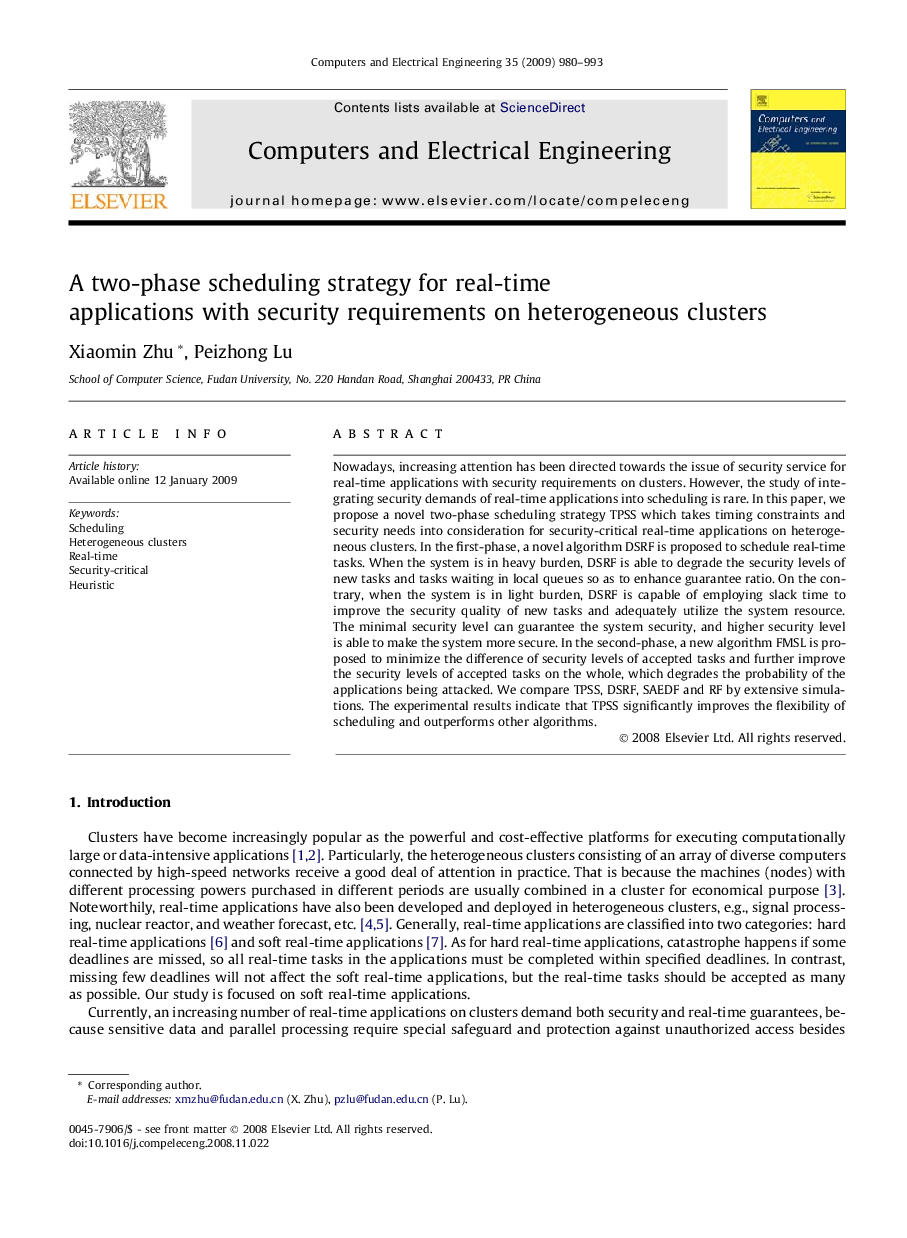| Article ID | Journal | Published Year | Pages | File Type |
|---|---|---|---|---|
| 455789 | Computers & Electrical Engineering | 2009 | 14 Pages |
Nowadays, increasing attention has been directed towards the issue of security service for real-time applications with security requirements on clusters. However, the study of integrating security demands of real-time applications into scheduling is rare. In this paper, we propose a novel two-phase scheduling strategy TPSS which takes timing constraints and security needs into consideration for security-critical real-time applications on heterogeneous clusters. In the first-phase, a novel algorithm DSRF is proposed to schedule real-time tasks. When the system is in heavy burden, DSRF is able to degrade the security levels of new tasks and tasks waiting in local queues so as to enhance guarantee ratio. On the contrary, when the system is in light burden, DSRF is capable of employing slack time to improve the security quality of new tasks and adequately utilize the system resource. The minimal security level can guarantee the system security, and higher security level is able to make the system more secure. In the second-phase, a new algorithm FMSL is proposed to minimize the difference of security levels of accepted tasks and further improve the security levels of accepted tasks on the whole, which degrades the probability of the applications being attacked. We compare TPSS, DSRF, SAEDF and RF by extensive simulations. The experimental results indicate that TPSS significantly improves the flexibility of scheduling and outperforms other algorithms.
